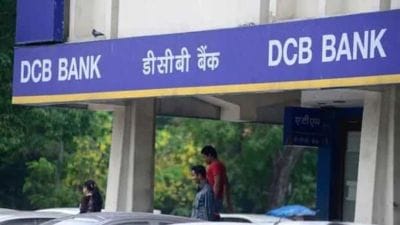There is panic and confusion in India’s digital lending space after the Centre, on Sunday, ordered internet service providers and app stores to block 94 loan apps that have Chinese links or are not operated by entities regulated by RBI.
Jatin Grover takes a look at the move, the resulting confusion, and discussions around this
Behind the blocking…
On Sunday, the electronics and information technology ministry ordered the blocking of 232 apps facilitating betting, gambling, money laundering, and unauthorised lending, according to Prasar Bharti and others aware of the matter, on the direction of the Union home ministry. Of the 232, 138 are betting apps and 94 are lending apps. While there is no official communication from the Centre, reports suggest that the ‘blocked’ list includes Kissht, PayU-owned LazyPay, Ola Avail Finance, Indiabulls Home Loans, PayRupik, and Quick Finance.
As per industry executives, a likely reason for the order is data privacy issues, especially with apps that have Chinese links, and the usurious interest rates and the harassment of borrowers by some upon delay in interest payment or loan repayment.
RBI and the blocking of the loan apps
RBI has given a list of apps being used by its regulated entities, such as non-banking financial companies (NBFCs), to the ministry of electronics & information technology (MeitY), which in turn, has shared the list with app-download platforms such as Google Play Store and requested them to ensure that they host only the apps figuring on the list.
“We asked the NBFCs to give us a list of apps they use for lending purposes. We have given that list to the government and it has taken this step based on the list that we have provided,” RBI governor Shaktikanta Das said on Wednesday. The reason behind RBI conducting this exercise is to completely ban any disbursal of credit outside its regulation. Therefore, NBFCs have been asked to provide the details of apps they are using that lend on their behalf.
The resulting confusion
The companies affected by the ban have not received any official communication from the MeitY regarding the blocking of their apps on app-download platforms. In the absence of any official communication, digital lending apps do not know whether their name features in the list of blocked apps or not. While the consumers of companies such LazyPay, Indiabulls Home Loans, etc, are not able to access the respective apps, some of the other companies in the list say their apps are still operational.
Besides, the Centre has banned many clone apps of companies like Kreditbee that were hosted on the third-party Android app-store, Aptoid. So, some companies actually see this move as a positive development for them. The consumers of some of these apps are also facing difficulties in clearing the dues. Users of apps like LazyPay also took to Twitter to complain about them not being able to access the app and clear dues.
The affected apps’ response, and the government’s stand
Digital lending apps and fintech players have sought reasons from the MeitY regarding the ban. The government has started discussions with digital lending companies and asked them to furnish details regarding their shareholding patterns, board compositions and documents to show that they are authorised by the Reserve Bank of India (RBI) to operate. Reports suggest that Google is also reviewing the order from MeitY regarding the blocking of certain apps. The digital giant is also learnt to be separately reaching out to the companies whose names are there in the list shared by the government with its Play Store.
Under Section 69A of the Information Technology Act, the government has the powers to restrict access to any content to protect the sovereignty and integrity of the country, security of the state, friendly relations with foreign states or for public order. According to the government, the Enforcement Directorate has seized Rs 859.15 crore under Prevention of Money Laundering Act. According to it, the ED’s investigation points at the proceeds of such laundering being routed by accused persons/entities through illegal loan apps.









